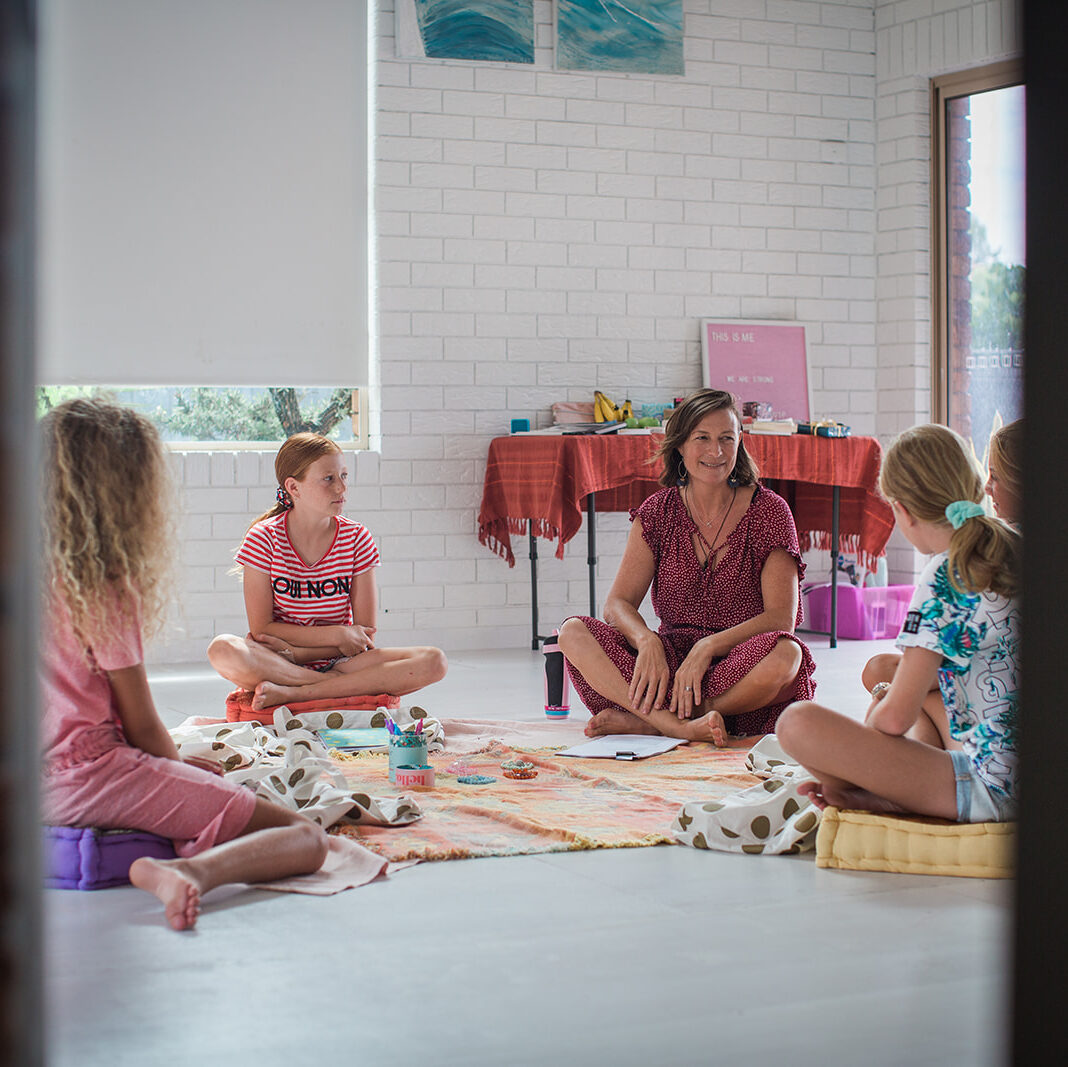
A little heart to heart mumma’s about why we can’t be doing our girls a disservice and only having one period talk, or leaving it up to school, or worse, her friends.
Do you know just how much how cycle changes, or how we look at our cycle differently in the 40ish years we have periods? A lot!!
I can’t say this enough, we need to be taking more notice, and having more conversations. I will say this over and over, but I wish I knew more about my cycle when it first started, not learned it all as it’s on its way out.
If our girls wanted to dance, practice art of play a sport, we wouldn’t be done in one session would we? No, as they develop more skills, they progress to another level. Our cycle is much the same, progressing through new levels depending on our age, lifestyle and health.
Here’s 8 “levels” our cycle goes through and why we need to be having more than one period talk.
MENARCHE AND TEEN YEARS
At the onset of her first period (Menarche), it can take a few years until her brain and hormones are communicating at the mature level to bring regular cycles.So while we talk about a normal cycle being 26-32 days, this may not occur until her mid-late teens.
Until then her cycle may look like:
– A cycle of 21-45 days
– Heavier periods, caused by the ovaries not yet ovulating and no progesterone being produced.
– Mid cycle spotting
– Mood swings
TRYING NOT TO CONCEIVE
Once we become sexually active there is a time when we are actively trying not to conceive. This is a VERY important time to know our cycle intricately. Firstly understanding that we cannot get pregnant on any day of our cycle, but also understanding when we, personally, are most fertile. We may choose to use a form of contraceptive at this time, and again, it’s important to know how these may affect our cycle and our bodies in the short, mid and long term.
CYCLE ABNORMALITIES
– There are many times when abnormalities occur within our cycle.Often these go undetected or undiagnosed because we’ve been told many of these symptoms are normal, or that it is in our head.The fact that endometriosis takes on average 7 years to diagnose is far too long.It is not normal to experience painful or heavy periods, or cycles longer than 33 days on a regular occurrence.The more conversations we have around this, the more help we can get for those who suffer through these.
Some cycle abnormalities include:
– Endometriosis
– PCOS (Polycystic ovary syndrome)
– PMDD (Premenstrual dysphoric disorder)
– Amenorrhoea
– MRKH (Mayer–Rokitansky–Küster–Hauser syndrome)
TYRING TO CONCEIVE
As with when we are trying not to conceive, preparing for conception is a crucial time in paying attention to our cycle.Not only for the conception itself, but to also prime the body in the best possible way to be carrying a baby for the following months. Knowing our bodies most fertile times through the signs of ovulation by assessing cervical fluid, basal body temperature and other signs personal to you, will help prepare for conception. Working with the four seasons of the cycle, including resting while bleeding, will also help prime your body for pregnancy.
POSTPARTUM CYCLE
After having a baby it can take a little while for our cycles to return to normal.Firstly it may not return for several months depending on how long you are breastfeeding for, and secondly, when it does return it likely won’t be the same cycle you were experiencing before conception, for a few cycles at least.
The first few postpartum cycles can:
– Have increased cramping
– Be heavier
– Be longer or shorter in length to previous cycles
– Be more irregular (especially whilst breastfeeding)
If you’re a tampon user, things may feel a little different for a while too.
HYSTERECTOMY
The removal of the uterus, or any parts of the sexual organs can also play a big part in our cycles. If ovaries remain, the normal cycling will remain, without the period occurring.This means that the four phases of the cycle, and the mental, emotional and energetic transitions throughout these phases will still be experienced. Symptoms of peri-menopause and menopause will also still be experienced if the ovaries remain.During this time it is imperative that physical health remains a priority.
PERIMENOPAUSE
Anywhere from the age of 35 we can start to transition into the years of perimenopause, also sometimes termed second puberty. Perimenopause can last from 7-10 years and goes through 4 different phases:
– Regular periods with some signs of change, including shorter cycles or heavier periods
– Irregular periods, cycles vary more than 7 days
– Skipped periods, cycles are longer than 60 days
– Last period
During this time our hormones are fluctuating wildly. It’s common to see many symptoms caused by these changes, including hot flashes, weight gain, mood swings.
MENOPAUSE
Menopause is the phase that begins one year after your last period. The average age of menopause is 50, but it can occur between 44 and 56. Progesterone is no longer made and oestrogen is at an all time low.
I love how Masie Hill puts it in her book Period Power
“Oestregen makes us care about others, so when it starts to wane, our tolerance for putting up with people and their bullshit goes with it, and you could find yourself acknowledging all the times that you cared for others instead of yourself and feel bitter and resentful of how your own needs have been abandoned and ignored.”
The more we talk about periods, the more we work with our own bodies to acknowledge their power and the more we learn to care for ourselves based around our cycles, the less likely we are to feel bitter and resentful once it comes to an end.
If you’re ready for more open conversations with your daughter, find out about upcoming workshops in your area here.


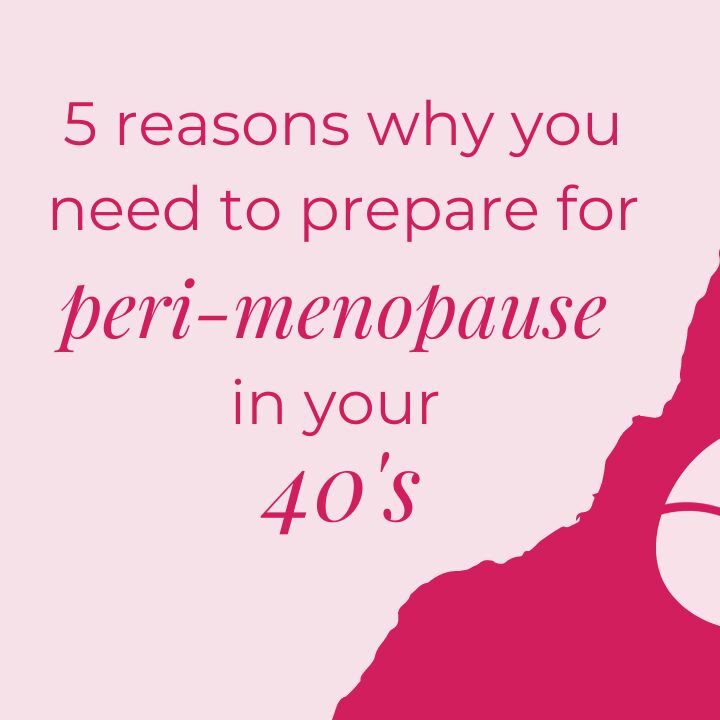

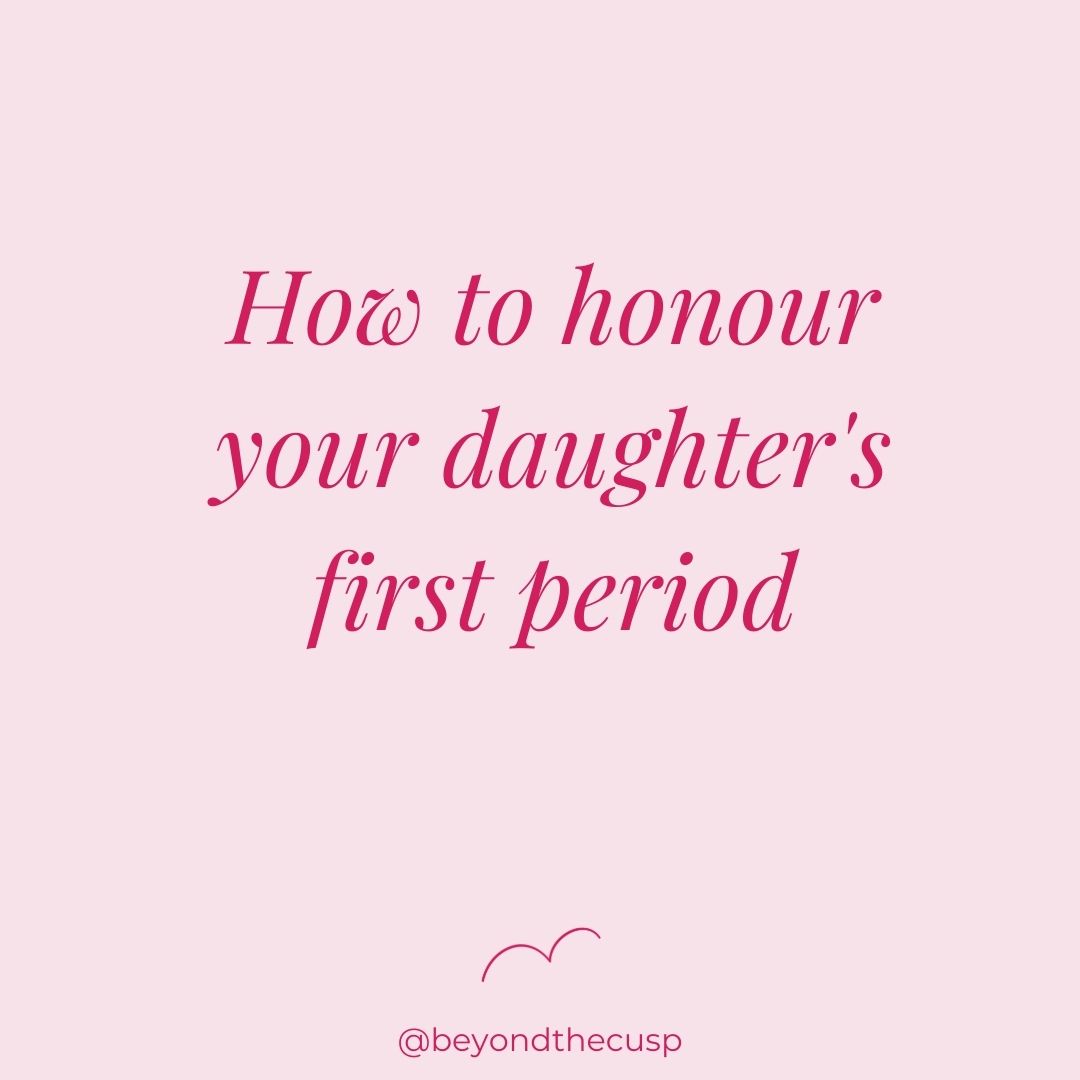
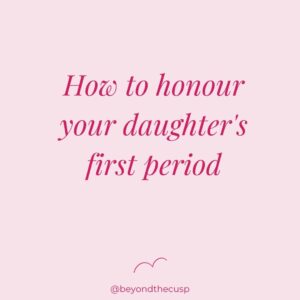
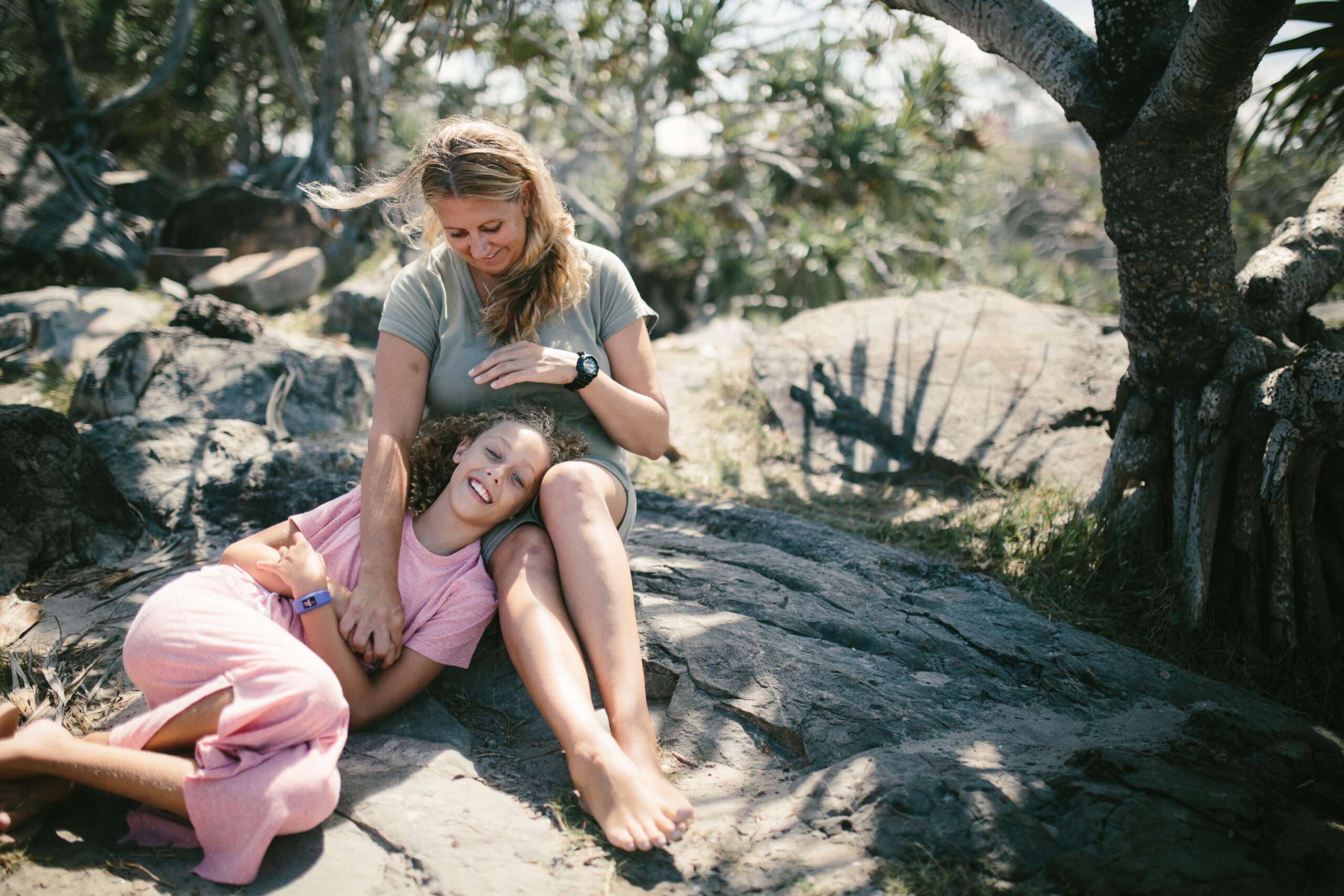
 Did you know that a girl’s first period is called menarche – mi-NAR-kee.
Did you know that a girl’s first period is called menarche – mi-NAR-kee.